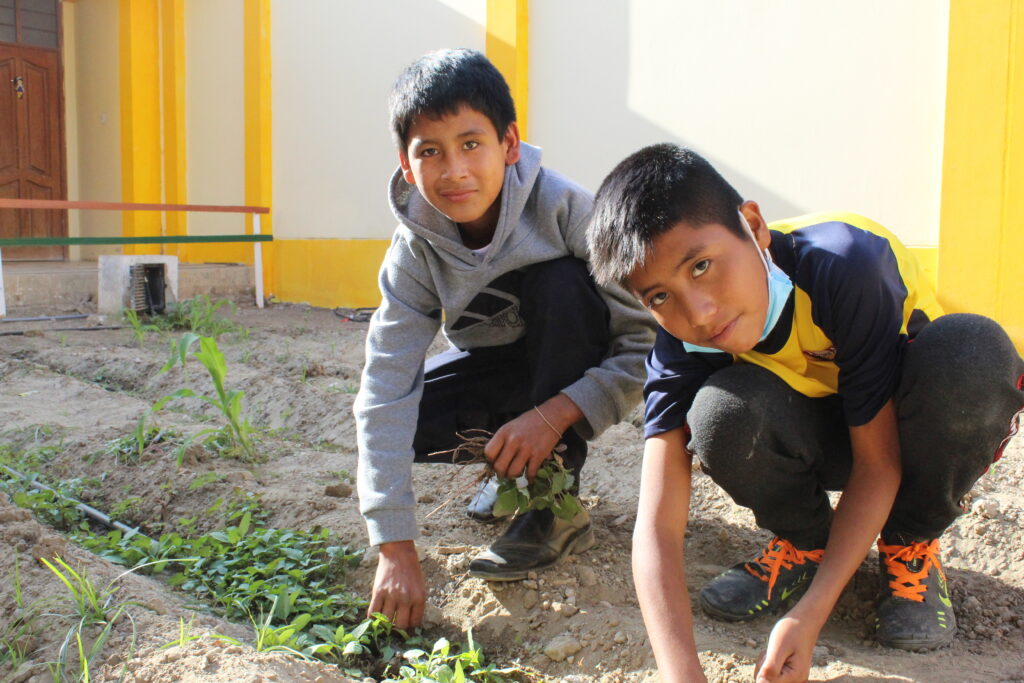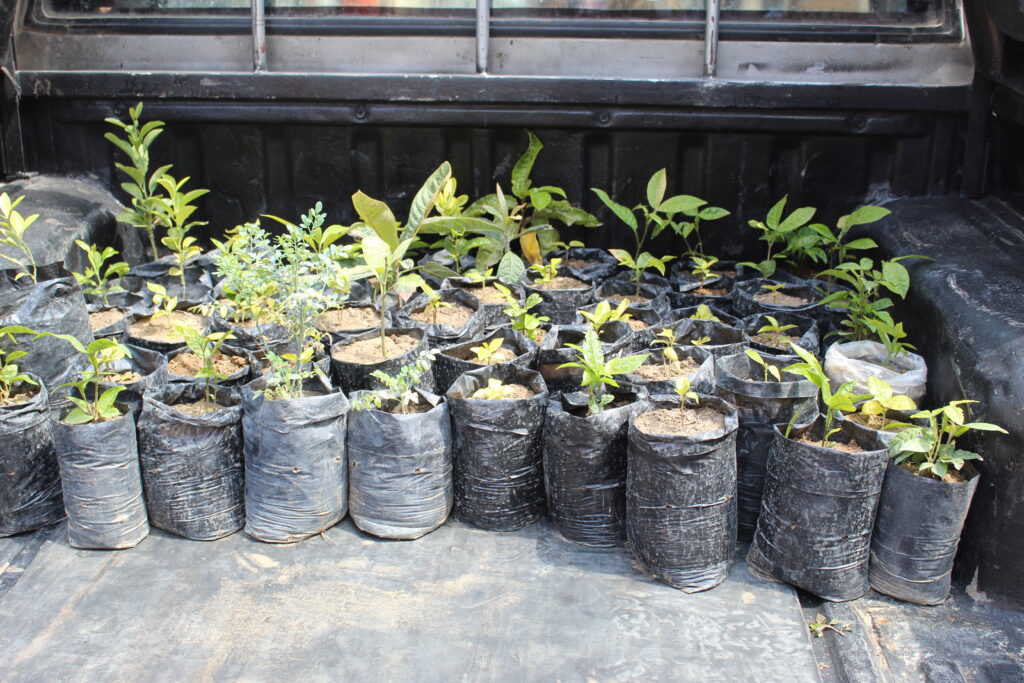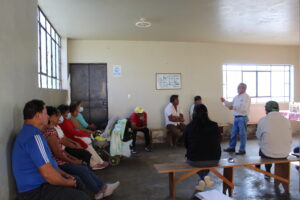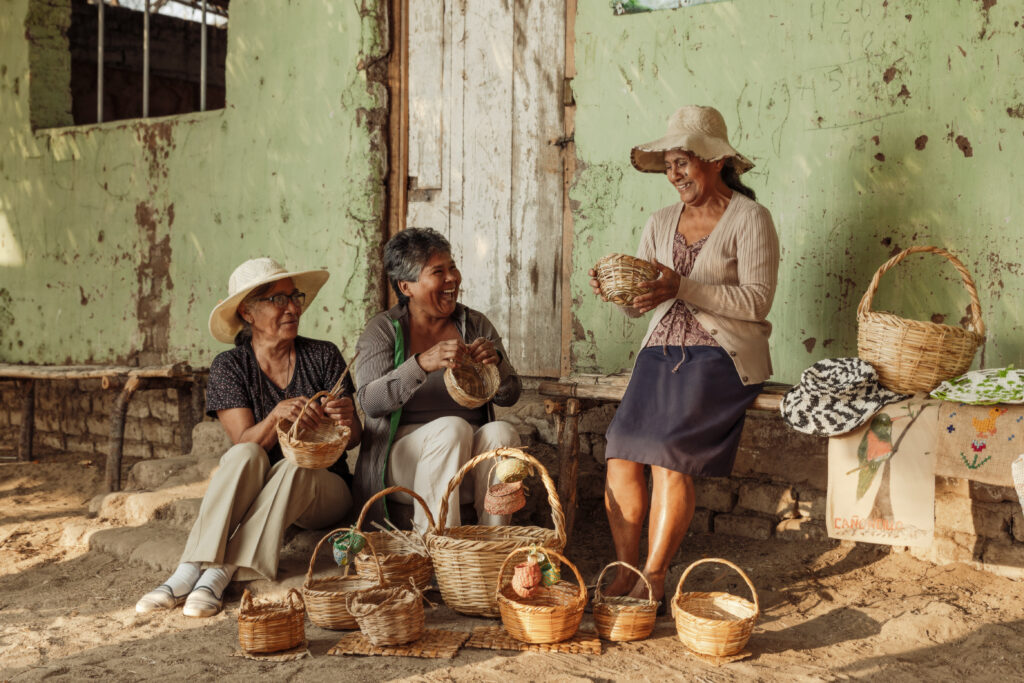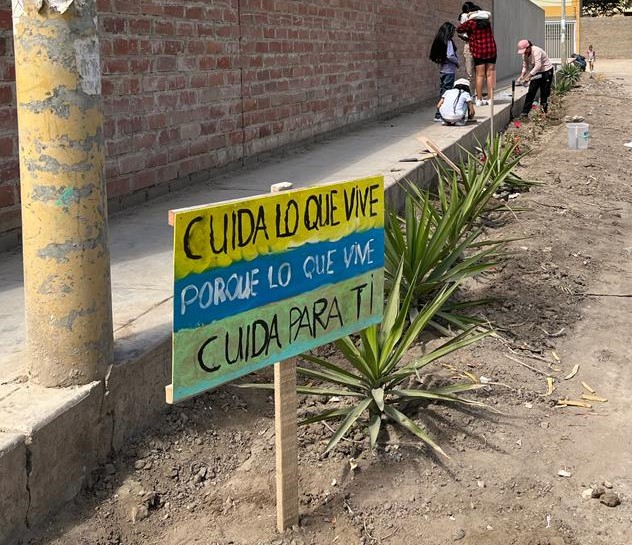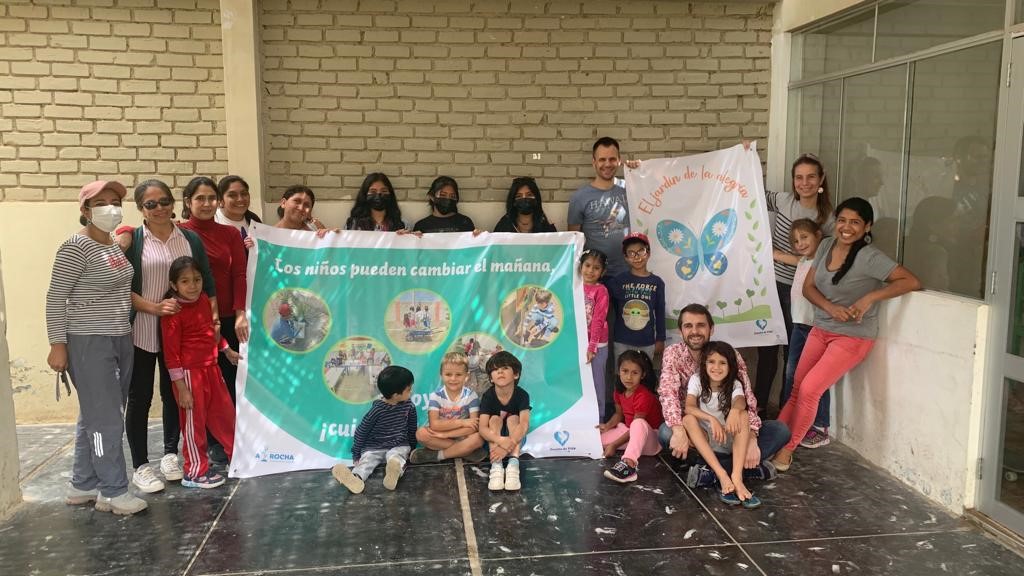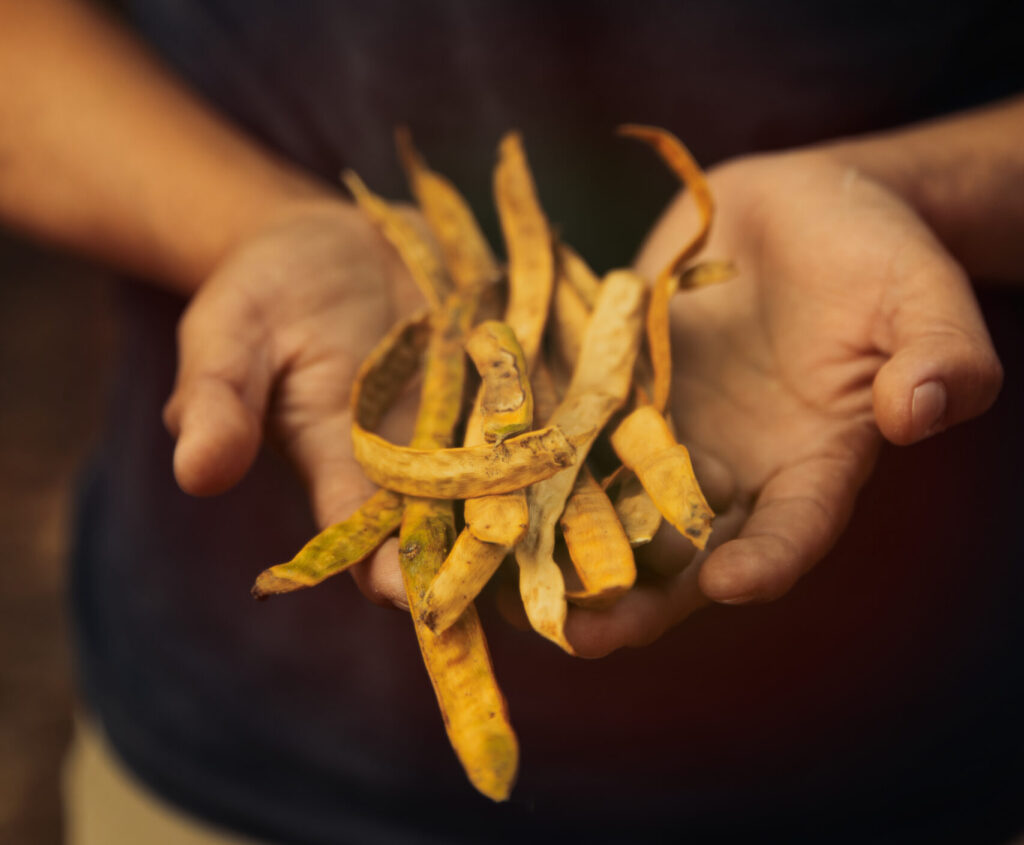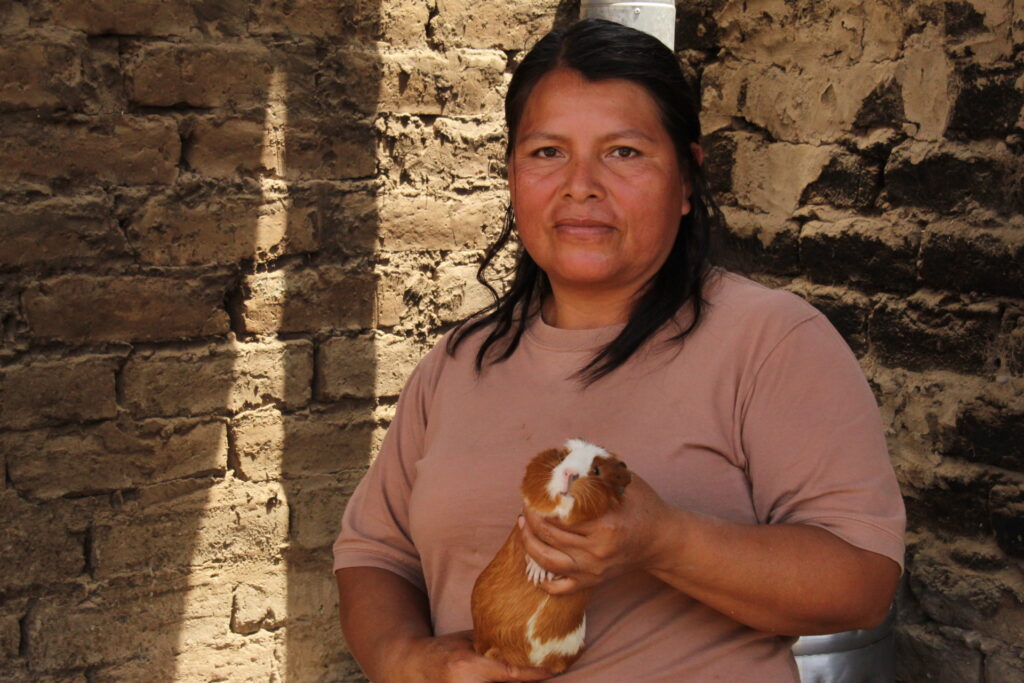
La Libertad Dry Forest Project continues to supply improved cookstoves for families in Pacasmayo. The improved cookstoves use less fuelwood than traditional open fires and reduce the need to cut down dry forest trees. The project delivered the kits to households in July and in August ten cookstoves were installed in households from San Demetrio and Pueblo Nuevo. A local mason installed the cookstoves.
This year the project also gave guinea pigs to beneficiary households to promote micro-livestock breeding. This new initiative hopes to address food security in rural areas. Guinea pigs are not only a source of animal protein but also their manure can fertilize agriculture fields and kitchen gardens. In traditional Peruvian households, the rearing environment for small animals is usually the kitchen, where the heat source protects guinea pigs from sudden temperature changes.
